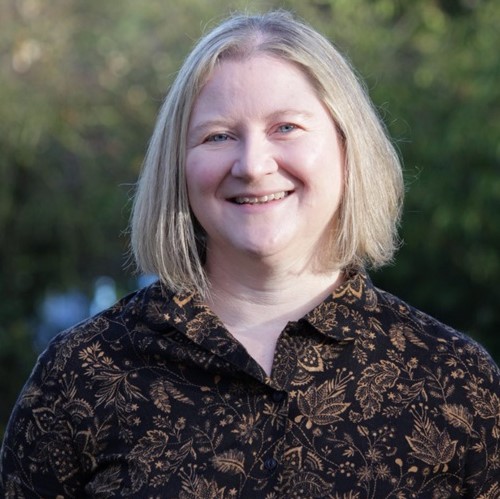Marianne Freeman
BES Grants Committee, BES Education & Careers Committee, and lecturer in Zoo Biology and Animal Science at Sparshold College, Hampshire

“I joined the BES as a PhD student and, after I graduated, I worked in the charity sector delivering ecological education. The BES was my pathway to staying connected to research, but I also discovered resources and networks that helped me with my job outside of academia. I wanted to get involved more, to build those connections and my own early career opportunities.
“I was full of ‘imposter syndrome’ when I attended my first Education & Careers Committee (ECC) meeting, but I didn’t need to be nervous as the staff and other Committee members were so friendly and welcoming, and were keen to give me roles to make me feel involved.
“Throughout the last few years, I have had some amazing opportunities, such as getting involved with the Scottish Policy Group, attending events at the Scottish Parliament, and helping to deliver policy workshops. Sitting on the ECC, I have been involved in shaping the mentoring scheme and Undergraduate Summer Schools, as well as helping to host workshops at the Annual Meeting.
“I now sit on the Grants Committee. This was daunting as I had never submitted a large grant application and I was unsure if I would be suitable. I discovered that, with an understanding of research methods, I could be guided through everything else.
“I was matched to projects in my skill set area, and each grant was reviewed by others to ensure fairness. It is a nice break from the day job to take a lovely walk along the canal to visit the BES’s beautiful Head Office, but with remote working it is also easy to connect in from anywhere in the world. We have committee members from all over ‘Zooming in’ to the meetings, so you don’t have to be local.
“These opportunities on committees are great for early-career ecologists to not only feel part of the Society, but also to get the chance to contribute your own ideas and directions.
“Sitting on the Grants Committee allows you to improve critical skills and learn more about the grants process. You can understand more about why applications are accepted or rejected, which may help to improve your own personal grant applications, wherever you may be applying.
“The time commitment depends on your involvement, but, in general, meetings only take up a few days a year, though there may be other aspects such as mentoring or reviewing that can be an additional commitment.
“If you are considering it, go for it – There are so many positives that you will take away.”
Like what we stand for?
Support our mission and help develop the next generation of ecologists by donating to the British Ecological Society.